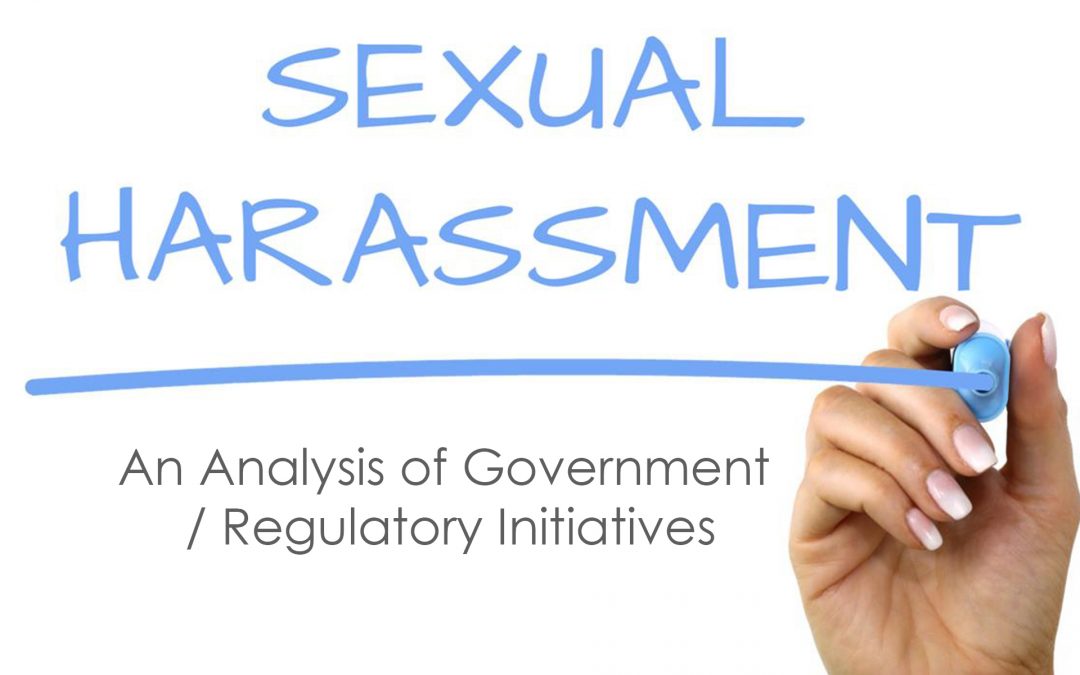Owing to various complexities and nuances, it is more often than not, difficult to effectively implement the letter of law in spirit. Adapting to change is never easy and less so when it comes to organisations adapting to new laws or changes in existing ones. One area of legal provisions which has been in the limelight of change recently is the Sexual Harassment of Women at Workplace (Prevention, Prohibition and Redressal) Act, 2013 (Act). Although notified on 9th December, 2013, even today very few companies have been able to overcome the practical challenges involved in successfully complying with this Act; examples being set up an Internal Committee, and putting in place other preventive mechanisms contemplated under the Act.
The Ministry of Women and Child Development (MWCD) has made several efforts to ensure that employers/companies take steps to implement the provisions of this Act effectively to ensure that women enjoy a safe workplace environment. In one of its efforts to give this enactment more teeth, the MWCD had been pursuing the Ministry of Corporate Affairs (MCA) for a while to include compliance with this Act within the non-financial disclosures of a company’s Board Report, so that it catches the attention of the Board of Directors of companies. In a recent amendment to the Companies Accounts Rules, the MCA has now made it mandatory for all companies, except One Person Companies or Small Companies, to include in their Board Report, the status of its performance and compliance with the Act.
In this blogpost we will take you through this and a few other proactive steps taken by the Government of India to ensure effective implementation of the provisions of this Act.
Company’s Board Report to now reflect compliance with the Anti-sexual harassment law
As per the recently notified Companies (Accounts) Amendment Rules, 2018, effective 31st July, 2018, every company, except One Person Companies and Small Companies, has to include a statement in their Board Report that such company has complied with provisions relating to the constitution of Internal Complaints Committee under the Act. By making this disclosure in the Board Report mandatory, this step should ensure that such matters will always be on the radar of the Board of Directors of the company. Failure to comply with this requirement attracts a penalty of Rs. 50,000/-, extendable to Rs. 25,00,000/- along with potential imprisonment for all officers in default.
Working women can file a complaint directly with the Ministry through the SHE-Box
The Ministry of Women and Child Development has introduced the ‘SHe-box’ (an online, sexual harassment complaint management system) for women working in the public as well as private sector. This portal has been launched with the aim to provide quick and hassle-free complaint registration facility to women facing sexual harassment at workplace, and applies to working women across the organised, unorganised, private and public sector. The portal also serves as an additional forum, where a woman who has already filed a written complaint with the concerned Internal Committee can again file her complaint here. Once a complaint is lodged through this portal, it gets sent directly to the concerned authority having jurisdiction to take action into the matter. It enables both the MWCD and the complainant to monitor the progress of the inquiry conducted by the concerned authority.
Compliance Obligations prescribed under the Act
|
DM, Chandigarh directs all organizations working round the clock to have in place safe pick up and drop facilities, especially for women employees
Following the footsteps of the Delhi Judiciary, where the District Magistrates routinely issue orders u/s 144 Cr. P.C (power to issue order in urgent cases of nuisance of apprehended danger) from time to time; to ensure safe environment and security, especially to women employees working late/long hours, now the District Magistrate in Chandigarh has in an Order dated August 31, 2018 directed all organizations/companies to follow certain checks and balances.
A few checks as ordered are:
- Organizations must maintain data of all employees, security personnel, cab drivers and contractual workers working with them and hire them only from licensed agencies.
- Carry out sound background verification of drivers, guards and contractual employees.
- Routes chosen should be such that a woman employee is not the first to be picked or last to be dropped.
- Cab dropping off female employees during night time to remain halted after dropping her off till such employee has confirmed her arrival at the place of stay by way of phone call.
- GPS system to be installed in cabs, especially those ferrying female employees.
New Shops and Establishments Rules, 2018 in Maharashtra mandates employers to strictly enforce all the provisions of the Anti-Sexual Harassment Act
The recently notified Maharashtra Shops and Establishments (Regulation of Employment and Conditions of Service) Rules, 2018 effective 23rd March, 2018 has now included specific compliances upon an employer to take all measures and safeguards to prevent or deter the commission of sexual harassment acts at the place of work. As per Rule 13, dealing with the ‘Conditions for employment of women in general as well as in night shifts’, of the newly introduced Rules, the employers must take steps to ensure the safety and security of their women employees, such as:
a) every employer will have to maintain a complaint box.
b) The employer will also have to display the phone numbers of local police station, control room and women help line numbers prominently in the establishment, to ensure finding support lines are never a problem.
c) It is also mandatory for employer/s to conduct police verification of workers engaged for safe and secure transportation of women workers such as drivers/security guards etc.to ensure that the right people are engaged which was not mandatory earlier.
d) The employer is also required to annually submit an undertaking to the Facilitator that he shall provide all facilities and shall take due care and diligence to ensure the safety, dignity and honour of women worker in general and particularly of those working in night shifts.
The Maharashtra Shops and Establishments (Regulation of Employment and Conditions of Service) Act, 2017 imposes a penalty of Rs. 1,00,000/- for contravening of any of the above requirements. For continuing contravention, an additional fine which may extend to Rs. 2000/- will be imposed for every day during which such contravention continues.
With the MCA, MCWD, Labour Ministry, Judiciary all playing their part in ensuring the letter of this Act is implemented in spirit, through these measures cited above, and with other Regulators and Ministries getting involved, the Indian workplace is expected to go a long way in implementing the true spirit with which the Anti-sexual harassment Act is implemented in India. Above anything else, it may be said that with skillful training, pragmatic sensitising, appropriate deterrents, the journey to a safe workplace for women will be collaborative, insightful and enriching for everyone.
To know more about making your workplace a better one, by complying with the provisions of the Act or for assistance in setting up ICC and handling complaints, spreading awareness and sensitivity, please feel free to contact us at inquiries@lexplosion.in
Authors:
- Antara Dasgupta (Senior Manager – Legal Operations)
- Madhura Bagchi (Legal Associate)
Disclaimer
All material included in this blog is for informational purposes only and does not purport to be or constitute legal or other advice. The Blog should not be used as a substitute for specific legal advice. Professional legal advice should be obtained before taking or refraining from an action as a result of the contents of this blog. We exclude any liability (including without limitation that for negligence or for any damages of any kind) for the content of this blog. The views and opinions expressed in this blog are those of the author/(s) alone and do not necessarily reflect the official position of Lexplosion. We make no representations, warranties or undertakings about any of the information, content or materials provided in this blog (including, without limitation, any as to quality, accuracy, completeness or reliability). All the contents of this blog, including the design, text, graphics, their selection and arrangement, are Copyright 2018, Lexplosion Solutions Private Limited or its licensors.
ALL RIGHTS RESERVED, and all moral rights are asserted and reserved.





